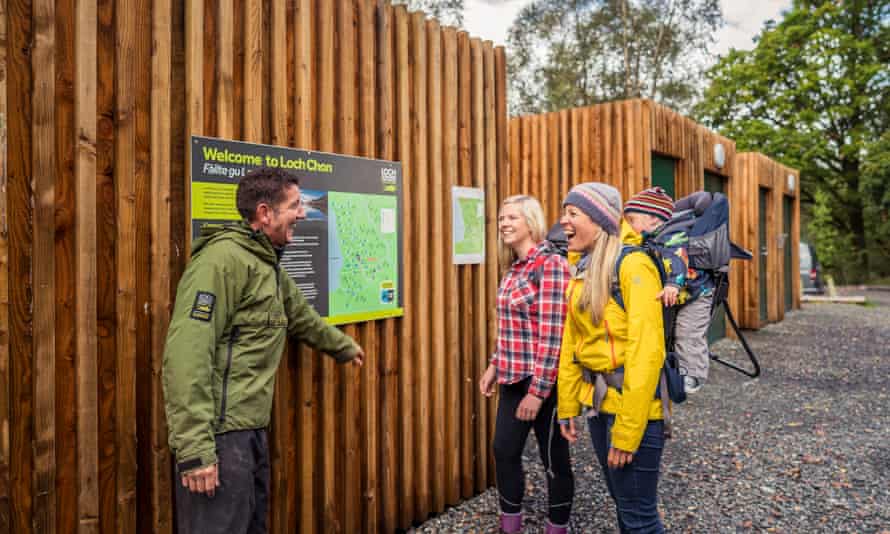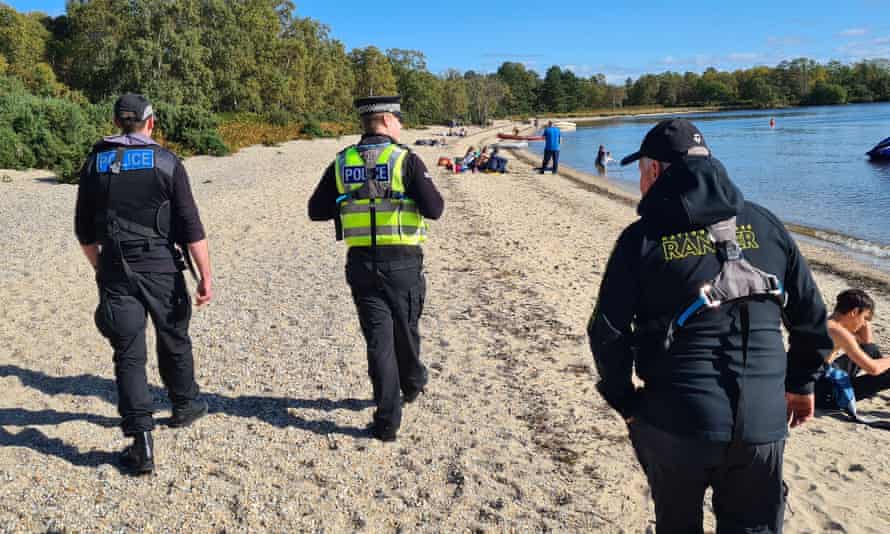From a campaign about poo, to advance booking for parking spaces, to a Zoom session advising farmers how to establish a pop-up campsite on their land, national parks across the UK are gearing up for a surge in visitor numbers as lockdown restrictions ease.
The plans come in the wake of devastating scenes last year when hordes of visitors descended on beauty spots and relieved themselves in the countryside, left huge amounts of litter and parked in inappropriate and dangerous places.
“Last year was a year like no other and national parks were particular hotspots in terms of visitors,” said Tom Hind, chief executive of North York Moors national park, who is also leading a national approach to visitor management this year with all 15 national parks in the UK involved.
“Understandably, people wanted to get out. That was a massive challenge for many national park authorities. It also had significant upsides. It’s rekindled a level of interest in national parks that we haven’t seen in previous years and brought new people who have never visited before.”
With the tourism sector starting to reopen in Wales from 27 March, restrictions in England easing from 29 March and in Scotland not long after, national parks are expecting high visitor numbers again this year.
“We’re definitely expecting it to be very busy,” said Hind. “Through the course of the summer, we’d expect there to be a staycation effect as people look to stay in the UK. Some of our tourism businesses that run self-catering accommodation say they’re booked up right through to the end of the year.”

In preparation, Loch Lomond and the Trossachs national park has introduced 23 extra toilets, with more to come. It will be continuing its “What to do when you need to poo” campaign, which features slogans such as “Can you dig it? Yes you can” and “Shh … It happens …”.
In more remote parts of the park, campers will be provided with a pack that includes biodegradable poo bags with information on how to pack their waste. “What to do when you need a poo is a serious campaign from us and we have been experimenting with providing trowels that you can borrow,” said Gordon Watson, chief executive of the national park. “We will be rolling more out. We’re talking about dispersed remote areas where you can’t simply just build a toilet block.”
Hundreds of miles south in Devon, Dartmoor national park is working on a communications plan that will educate people on how to behave in the countryside. One point of concern is the rise in popularity on social media of moss art, which involves people collecting moss from national parks and turning it into works of art. There are fears the practice could cause major damage if it becomes normalised.
According to its visitor management plan, Dartmoor is focusing on “tools not rules” and developing a social media campaign that is positive and humorous.
Two volunteer mountain bikers have also been recruited to look at route development and build relationships with other cyclists to help repair and maintain routes.

Back in Scotland, the Cairngorms national park is preparing to welcome back visitors with a GBP1m investment in staffing and infrastructure with extended car parks, improved paths and traffic-calming measures.
Other parks haven’t been quite as lucky with additional funding so are relying on volunteers who will support existing rangers. In the Yorkshire Dales, 25 extra volunteers have been enlisted to be at honeypot sites, such as Aysgarth Falls and Malham.
Kathryn Beardmore, director of park services, said: “We’ve taken a lot of lessons from last year. When our car parks start filling up, we’ll put posts up on social media. We’ve got some ideas about getting people to consider other places.”
The Lake District, meanwhile – wary that the rule changes coincide with the start of lambing season – has launched a campaign asking visitors to ensure that puppies bought during lockdown are ready for the countryside.
And in Snowdonia national park in Wales, there will be bookable places at the most popular car park at Pen-y-Pass. For those without an advance ticket, there will be an enhanced park and ride service with Sherpa shuttle buses running every 15 minutes.
“We’re trying to strike a difficult balance,” said Hind of the plans. “On the one hand we want to welcome people back to the countryside, realising how important it is to health and wellbeing. At the same time we are trying to avoid downsides where there are excess visitors to a particular location and do that in a way that is sensitive to local communities.”